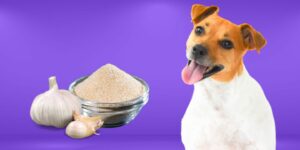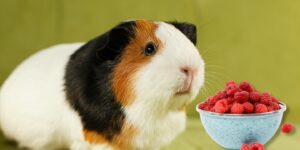Can Rabbits Eat Raisins? A Comprehensive Guide
Rabbits can eat raisins, but they should be given only in moderation due to their high sugar content. A rabbit's diet should mainly consist of hay, fresh vegetables, and a limited amount of pellets. It is essential to understand which foods are safe for rabbits and ensure a balanced diet for their health and happiness.
Nutritional composition of raisins
Macronutrients in raisins
Raisins are rich in carbohydrates, primarily in the form of sugars. Additionally, a small amount of proteins and almost no fat are present in raisins.
Vitamins and minerals found in raisins
Raisins contain several vitamins and minerals, such as vitamin C, vitamin K, iron, potassium, and calcium. However, these nutrients are present in relatively small amounts compared to other foods safe for rabbits.
The importance of a balanced diet for rabbits
The role of hay in a rabbit's diet
Hay is the most essential part of a rabbit's diet. It provides the necessary fiber for proper digestion, helps wear down their continuously growing teeth, and promotes a healthy gut flora. Adult rabbits should primarily consume grass hay, such as timothy, orchard, or meadow hay.
Fresh vegetables for rabbits
Fresh vegetables provide rabbits with essential vitamins and minerals, maintain proper hydration, and add variety to their diet. Ideally, leafy greens should make up the majority of fresh vegetables consumed by rabbits.
Pellets and their place in a rabbit's diet
Pellets should be provided in a limited amount to rabbits since, when consumed excessively, they might lead to obesity and other health problems. Quality pellets mostly contain hay, vitamins, minerals, and a low amount of carbohydrates.
The role of treats in a rabbit's diet
Treats can be a way to bond with your rabbit and add variety to their diet, but they should be given sparingly. Treats like raisins should be limited to 10% of the rabbit's daily caloric intake.
The dangers of feeding raisins to rabbits
High sugar content and its effects on rabbit health
Excessive sugar intake in rabbits can lead to obesity, dental problems, and digestive issues. High sugar content can also disrupt the balance of beneficial bacteria in their digestive system, which may cause gastrointestinal complications.
Gastrointestinal problems caused by raisin seeds
Besides the high sugar content, raisin seeds can cause gastrointestinal blockages if swallowed, leading to severe complications and requiring immediate medical attention.
Alternatives to raisins as rabbit treats
Fruits that are safe for rabbits
Rabbits can enjoy other fruits as treats, but they should also be given in moderation due to their sugar content. Some rabbit-safe fruits include apple slices (seedless), blueberries, and strawberries.
Vegetables rabbits can enjoy as treats
Some vegetables can be given as occasional treats, such as bell peppers, zucchini, and cucumber. Make sure to introduce new vegetables gradually and monitor your rabbit for any adverse reactions.
How to safely feed raisins to rabbits
Monitoring portion sizes
Follow the 10% rule when providing raisins as treats, ensuring that your rabbit's daily caloric intake from treats is limited to 10%. For an average-sized rabbit, this would mean no more than 1-2 raisins per day.
Introducing raisins to your rabbit's diet
Introduce raisins gradually, starting with a small piece, and monitor your rabbit for signs of gastrointestinal problems or other adverse reactions.
Signs of gastrointestinal problems in rabbits
If your rabbit experiences bloating, diarrhea, loss of appetite, or lethargy after consuming raisins, seek veterinary attention immediately.
Conclusion
Rabbits can eat raisins, but they should only be given in moderation and as an occasional treat. Maintaining a balanced diet that consists mainly of hay, fresh vegetables, and limited pellets is crucial for your rabbit's health and happiness. Always monitor portion sizes and your rabbit's reaction to any new foods to ensure their well-being.


























